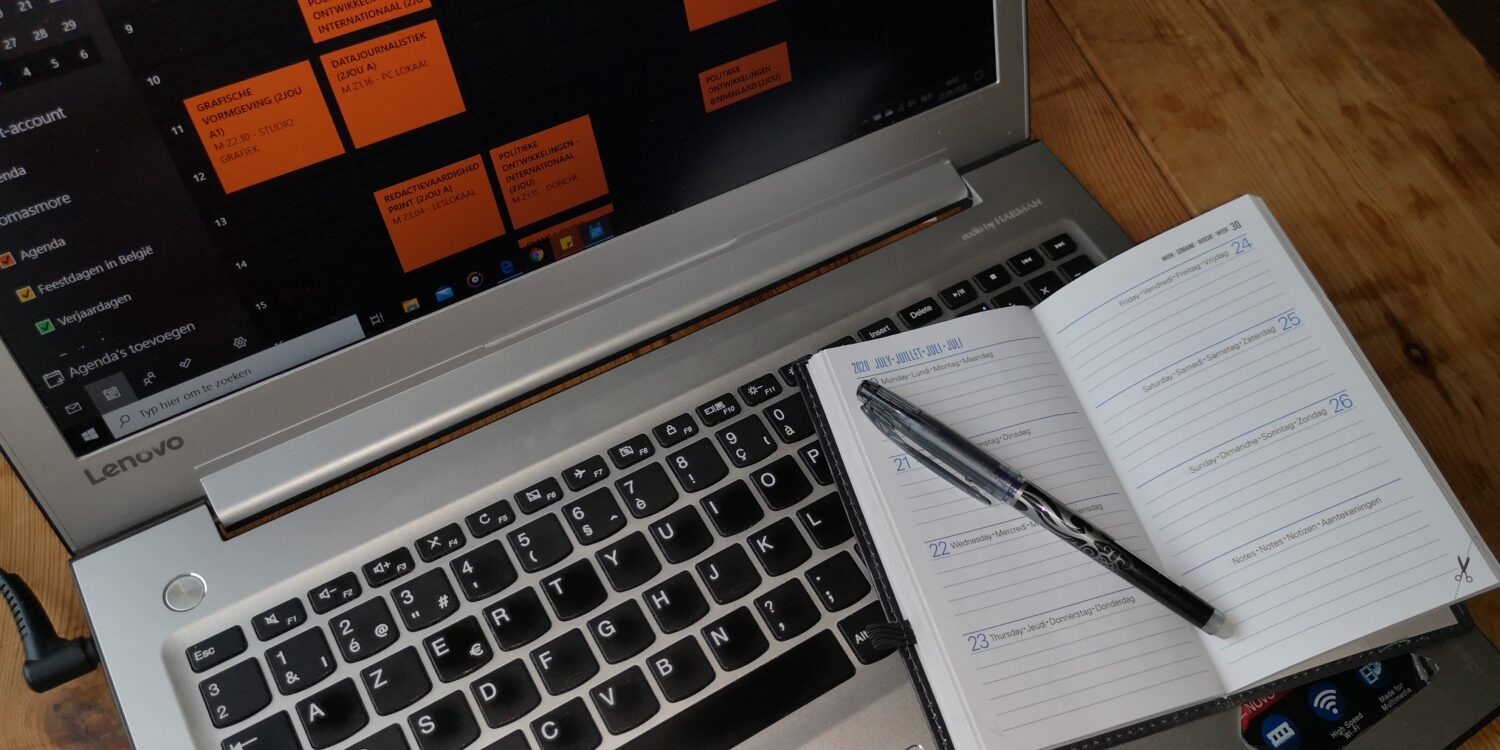
When days flow into each other and you live in your pajamas: time for quarantine routine
At the start of the corona outbreak the World Health Organization released a document with considerations on mental health. In it they advise people in isolation to ‘try as much as possible to keep your personal daily routines or create new routines if circumstances change.’
That’s easier said than done. In a recent article Dr. Elke Van Hoof, a clinical psychologist at the Free University of Brussels, warned about the Mental Health effects that isolation will have – and already has – on the population.
And while medical personnel, parents, and newly unemployed will have it harder, this pandemic doesn’t discriminate. Some students experience difficulties in getting their life back together as well.
Daily structure
‘The biggest issues students have now, have to do with studying. And it is very much linked to how a student feels at the moment,’ explains student counselor Laurens Wynen from University College Thomas More Mechelen. ‘What I often see is that students have lost a daily structure. Hence, they have difficulty to start schoolwork.’
‘I’m usually a very disciplined person, but now that’s all gone’
Journalism Student Arnaud De Martelaere (20) confirms: ‘At the start of the lockdown I had no schedule, and that didn’t work because then I procrastinated.’ International Journalism student Kaat Lansbergen (24) agrees: ‘I’m a bit surprised because I’m usually a very disciplined person, but now that’s all gone.’
‘We get a lot of questions like: “I have no motivation”, “I’m at my desk a lot but I don’t do anything”, or “I procrastinate a lot”. We often get them from students who didn’t have that problem before if they had a regular schedule,’ says Laurens Wynen.
Predictability
A regular schedule seems to be a big factor here. Clinical psychologist Leslie Hodge explains why: ‘As humans we function better with routine. It is good for our physical well-being because our bodies work on a light-dark cycle. And it’s good for our mental well-being because it creates predictability that brings peace of mind in a stressful world.’
‘Students might stay in bed all day and feel guilty that they wasted the day away’
She goes on to say that days can all feel alike now: ‘The days flow into each other if you get up and stay in your pajamas the whole day.’ Laurens Wynen adds: ‘You would think students have a lot of time to study now. But because every day looks the same, and because you don’t have to follow a schedule, it becomes very hard to work actively.’
Day wasted away
Not everybody experiences the same now that our schedules are no more. ‘Some people feel that a lot of societal pressure is gone now,’ says Leslie Hodge, ‘others experience a loss of control and don’t know what to do. They might stay in bed all day and feel guilty that they wasted the day away.’
5 helplines for when you need a listening ear during this worldwide corona pandemic
For Arnaud the loss of outside control poses a problem: ‘The lack of real-life, face-to-face control from teachers bothers me. I have trouble starting on things.’ Kaat, on the other hand, sees a positive to the situation: ‘In my daily life, I’m usually very busy with school and dance practice. Now I can do all the things I usually can’t, like watching TV.’ She adds that it does make her feel guilty from time to time.
Twenty tasks a day
What do we do to combat procrastination and guilty feelings? ‘It’s always good to set a few goals for the day,’ says Leslie Hodge. ‘But this also depends on the type of person you are. Some might need a stricter schedule than others.’ Her advice for a good routine is to try a daily schedule. ‘Divide the day into blocks of time. That way you can follow a routine more tailored to how you feel on that day.’
‘Say to yourself “this is what I will do today”. If it works then that’s great. If it doesn’t then there’s another day tomorrow’
‘It’s important to make a realistic schedule,’ she goes on, ‘It’s not because you have time now, that you have to finish twenty tasks a day. You can say to yourself “this is what I will do today”. If it works then that’s great. If it doesn’t then there’s another day tomorrow.’
A realistic schedule also means that we include moments of rest she explains. ‘Discover what that means for you. Maybe it’s going out to sport, a Skype conversations with friends, or going for a walk. Where do you get your energy from and what requires your energy?’
Health and relaxation
The World Health Organization also recommended to include relaxing activities, regular exercise and sleep routines, and a connection with others via social media, into your daily routines. Leslie Hodge agrees: ‘Some of the things you should try to do regularly are: getting daylight, outside air, exercise, and relaxation.’
‘If you get daylight and outside air that will help your day-night rhythm and it will help you tell the different days apart. And exercise is very important because it releases endorphins and serotonin that can positively influence your mood,’ she explains. ‘Additionally, since we are social beings, we shouldn’t forget to keep in contact. Definitely now that we can’t be together physically.’
Text and picture: © Lisa Poppe



